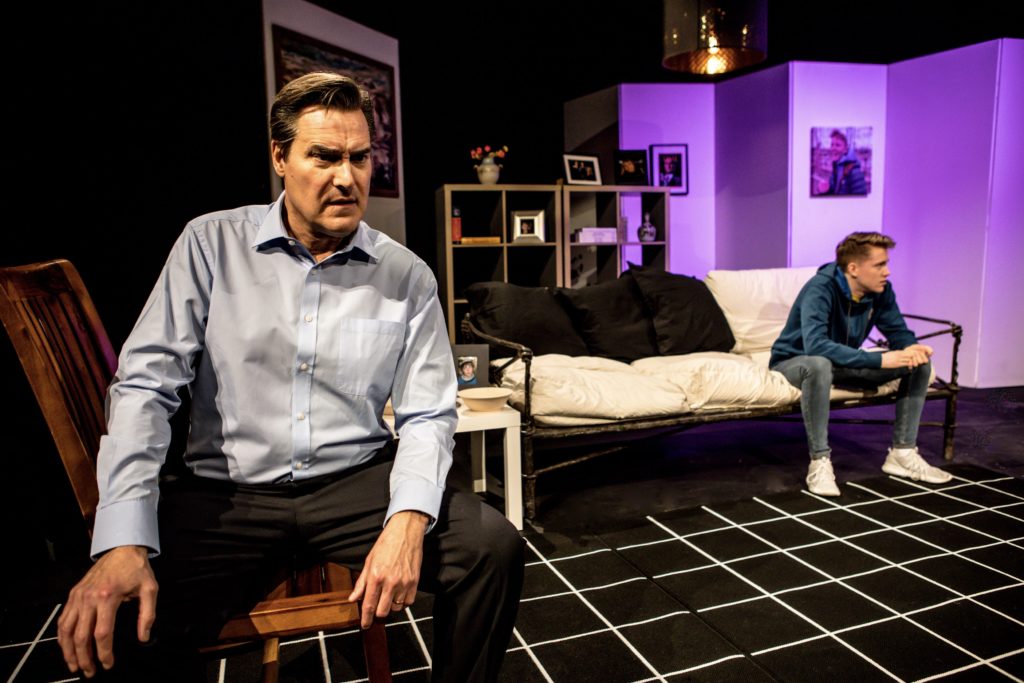
REVIEW: The Goat, or Who Is Sylvia?, Pick Me Up Theatre, John Cooper Studio, Theatre @41 Monkgate, York, dropping jaws until Saturday, 7.30pm. Box office: 01904 623568 or at pickmeuptheatre.com.
WELL, you won’t see a play like this every day, but I dare you still to see it in Pick Me Up Theatre’s northern UK premiere.
Playwright Edward Albee, born in Virginia, but long associated with New York after moving to Greenwich Village at 18, is best known for Who’s Afraid Of Virginia Woolf?. The 1962 one, turned into a 1966 Mike Nichols film with the almighty verbal scrap between Elizabeth Taylor’s Martha and Richard Burton’s George.
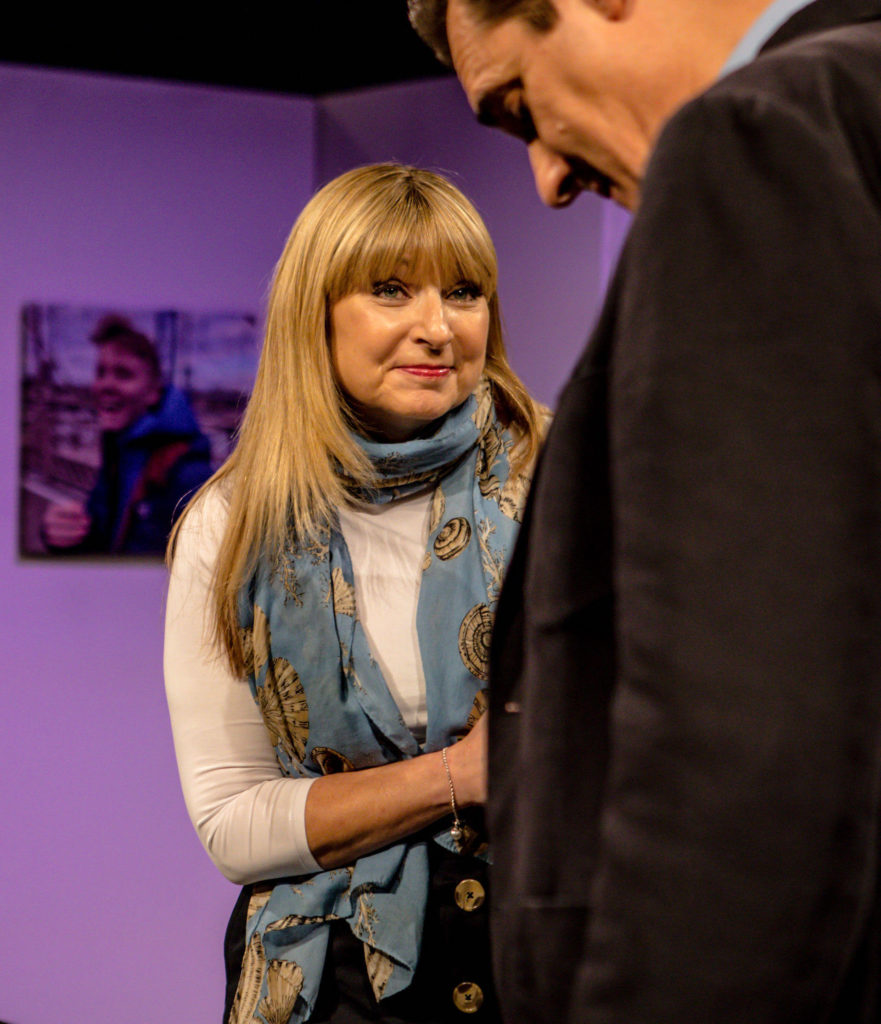
Albee wrote another play with a question mark in its title in 2002: The Goat, or Who Is Sylvia? The American agent provocateur of theatre of the absurd could pour 50 years of the even more absurd into it, but essentially it is a further study of the marital complexities of a middle-aged couple, in this case Martin and Stevie Gray.
Except that Albee’s Broadway premiere came with a plea from the writer: “Imagine what you can’t imagine… imagine being in love with something you can’t conceive of. The play is about love, loss, the limits of our tolerance and who, indeed, we really are.”
And there was more: “All I ask of an audience is that they leave their prejudices in the cloakroom and view the play objectively and later – at home – imagine themselves as being in the predicament the play examines and coming up with useful, if not necessarily comfortable, responses.”
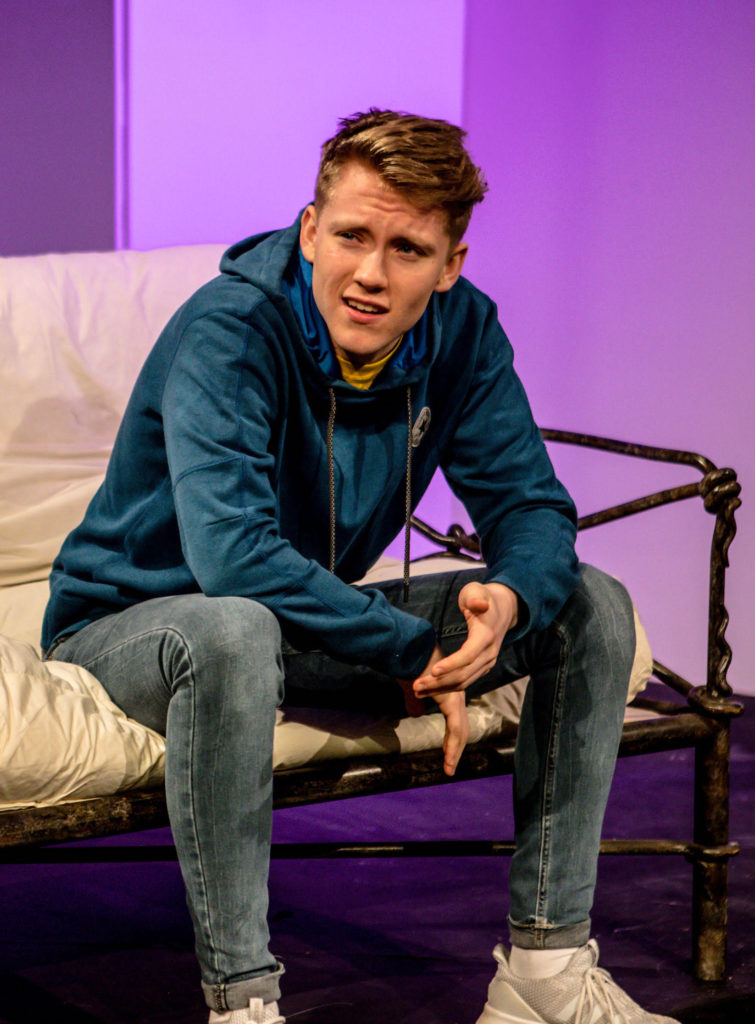
Who could sense at the start what lies in store, how famous New York architect Martin Gray’s world would soon turn to rubble as the American Dream crumbles? Played by suave American actor Bryan Bounds, who recommended the play to director Mark Hird, Gray has just turned 50, won his latest prize and been given the ultimate commission to design the World City on Kansas’s wheat fields.
Hair immaculate, life immaculate, house immaculate in its monochrome trendiness (in Robert Readman’s design), he says he could not be more happily in love with wife Stevie (Susannah Baines). Son Billy (Will Fealy) is blossoming at 17, brightly questing and gay (like Albee, who knew it at 12 and a half).
Yet Martin seems distracted, playing at forgetfulness in banter with Stevie, and what’s that smell, she asks. When he is even more distracted while talking with best friend Ross (Mick Liversidge), fouling up a TV interview recording, the truth will out. Martin has fallen in love with Sylvia, a goat (hence the smell), and the feeling is mutual, and yes, without being graphic, the relationship is full on.
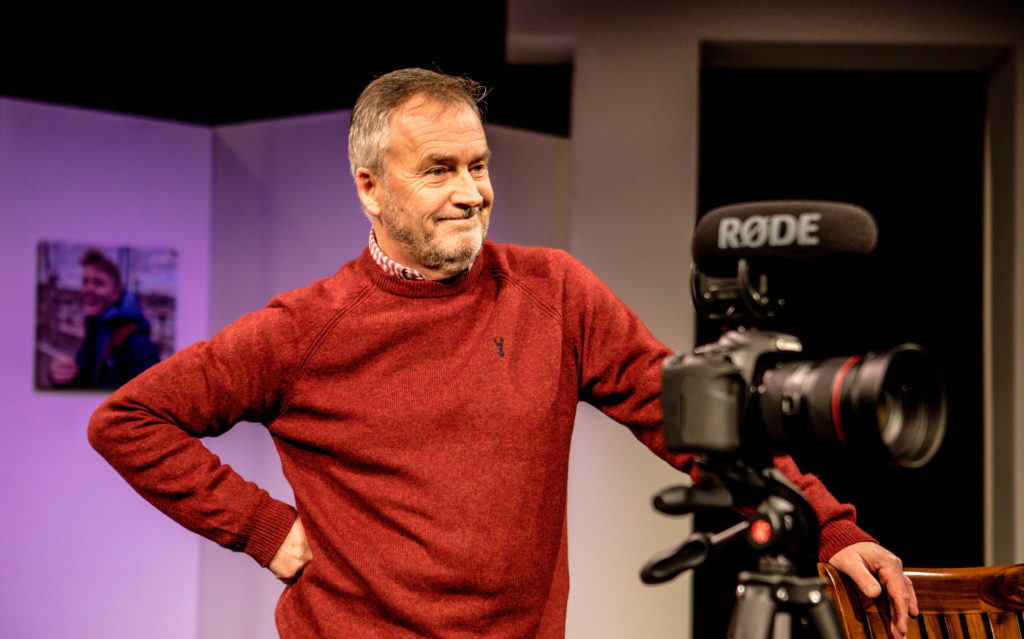
Greek tragedies dive deep into the extremes of the human condition, as do plenty of Shakespeare’s plays, and, especially, Jacobean tragedies. The Goat puts the ‘eek’ into a modern Greek tragedy, although it is more of a tragicomedy. Yes, you read that right. There is a liquorice-dark humour to Albee’s brilliantly written confessions and confrontations, as well as moments that are excruciatingly uncomfortable, as The Goat turns from domestic situation comedy to Domestos-powerful situation tragedy.
What’s more, Hird’s thrust-stage setting, with the audience so close up on three sides, adds to that discomfort, and not because Baines’s Stevie starts smashing all the living-room pottery (courtesy of Fangfoss Pottery’s Gerry Grant). No, it is the fierce heat, the candour, of what is being said. Hird’s cast avoids histrionics; instead the rise and fall and rise again of anger, hurt, confusion, love, is far more skilfully played by one and all, pulling the audience this way and that.
Bounds urged Hird to cast Baines, and he was spot-on: his Martin is infuriatingly phlegmatic, unflustered; her Stevie is an ever-tightening coil in response, whose actions will speak louder than his words.
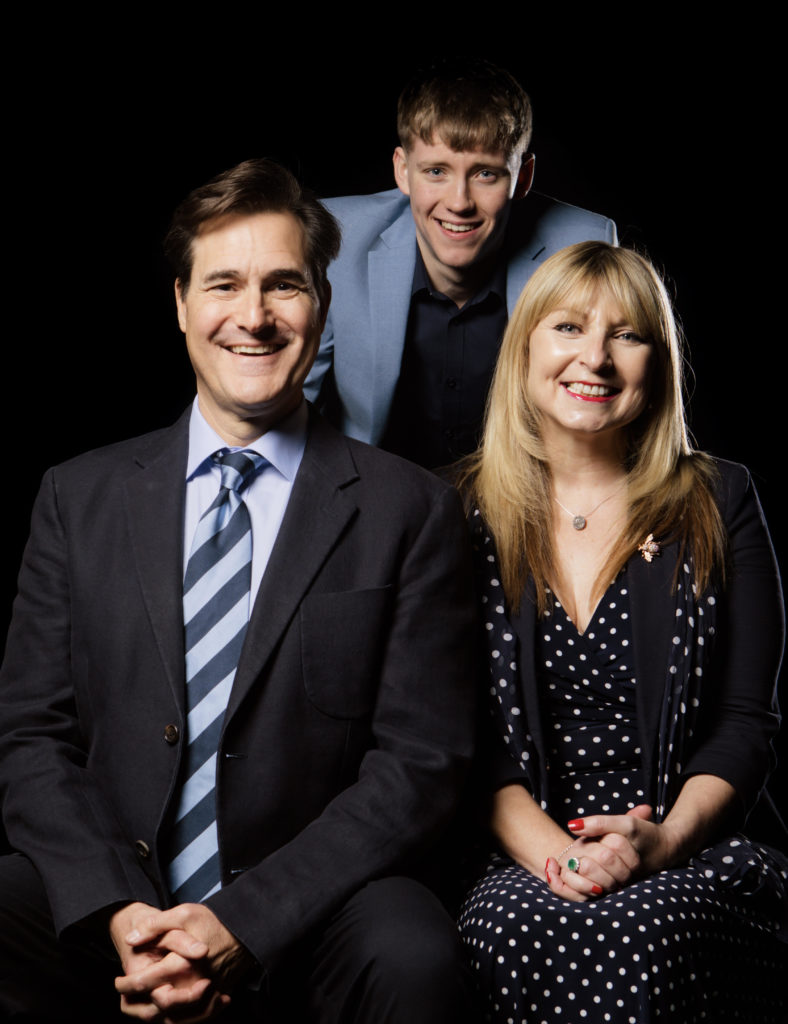
Son Billy is caught in the middle, and Will Fealy, such a burgeoning talent that he has just been offered an unconditional place at Arts.Ed in London, conveys all the confusions of illusions being shattered, certainties derailed, while dealing with his own sexual awakening.
Mick Liversidge’s bewildered, shocked Ross sort of represents the audience in his reactions, or does he, because the moral ambiguities are complex, and as Albee once said, “if you think this play is about bestiality, you’re either an idiot or a Republican”. Trump that!
Albee also said: “Never leave the audience the same way you found them”, and 90 unbroken minutes of The Goat – apart from the smashed bowls and vases – will leave you pondering relationships, family, love. As for goats, I’ll stick to loving goats’ cheese.
Please note: this play contains adult themes and strong language; suggested minimum age of 15.
